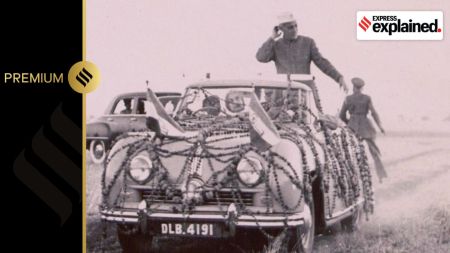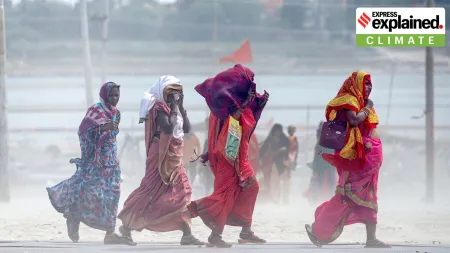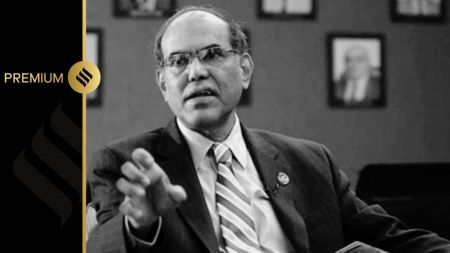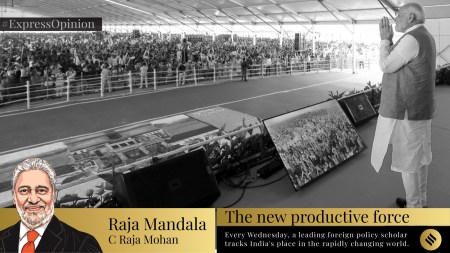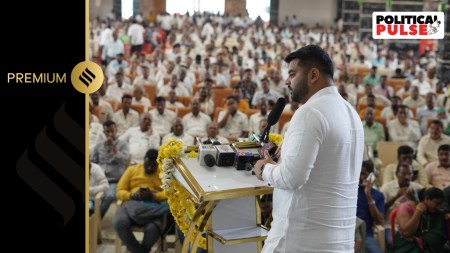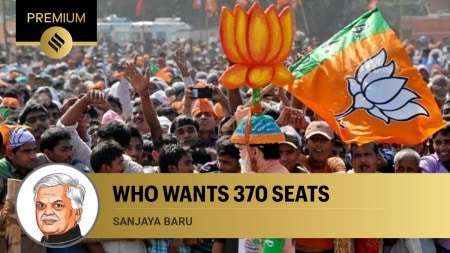- India
- International
Remembering Tagore, the bard who celebrated life
On Tagore’s 156th birth anniversary — 76th since his death — a look at the birth of his birthday song.
 Though he had initially rejected the idea, the love of his students had forced Rabindranath Tagore to write and compose his birthday song “He Nutan, Dekha Dik Arbar…” (Source: Wikimedia Commons)
Though he had initially rejected the idea, the love of his students had forced Rabindranath Tagore to write and compose his birthday song “He Nutan, Dekha Dik Arbar…” (Source: Wikimedia Commons)
Rabindranath Tagore, it is believed, did not leave any human emotion untouched in his works, especially in his poems. Be it nature, love, separation, celebration, devotion, patriotism or simple imagination, the bard has a song for every occasion. No wonder then, Bangla films are heavily indebted to Tagore, having extensively borrowed from his vast collection. And it comes as no surprise that a film as recent as Sankhachil has ‘Rabindranath Tagore’ on its credits as a lyricist.
It would have been, therefore, awkward if there were no Rabindrasangeet for his followers and admirers to sing in his memory on his birthday after he is gone. And the poet did not disappoint. Though he had initially rejected the idea, the love of his students had forced him to write and compose his birthday song. For the last 76 years now, Tagore has been invoked on his birthday, ‘Ponchishe Boishakh (25th of the month of Baisakh)’, with “He Nutan, Dekha Dik Arbar…” — a song especially written for the occasion, by the man himself.
It was the first week of May 1941. Santiniketan was preparing to celebrate its founder’s 80th birthday on May 8. His health had begun failing since the previous year. Two days before the mega event, former disciple Shantideb Ghosh came to meet him. Tagore sought to know from him what the plan was for the big day. “I understood he wished that the day be celebrated through music and dance,” Ghosh later wrote in his book ‘Rabindrasangeet’.
Listen to a rendition of ‘He Nutan, Dekha Dik Arbar…’ by Pankaj Kumar Mallick here.

Shantideb Ghosh had been handpicked by Tagore to be a teacher at Santiniketan and was sent across India and abroad for musical education for the purpose. In his memoir, he wrote how he tried to suggest songs that could be performed on his birthday.
“You decide on what you want to sing, why will I choose songs for my birthday?” Ghosh quoted Tagore as telling him in reply.
Also read: What would you serve Rabindranath Tagore if he came home for lunch?
The poet was then requested to pen a song especially for the occasion, but he refused fearing criticism and suggested names of some contemporary poets to do the job. Ghosh and others, however, managed to prevail and Tagore eventually gave in to their request.
Almost two decades prior to that, he had written a poem, ‘Ponchishe Boishakh’, which was part of his Purabi collection. Tagore made some changes to some of its lines and set it to tune, Ghosh wrote in Rabindrasangeet. The date was May 6, 1941, two days before his birthday that was celebrated with much fanfare.
 Tagore’s rather peculiar, bordering on the eccentric, tastes often threw the household into a state of panic. (Express archive photo)
Tagore’s rather peculiar, bordering on the eccentric, tastes often threw the household into a state of panic. (Express archive photo)
That was the last birthday he celebrated, and ‘He Nuton…’ became his very last poem, according to Ghosh. The poet passed away exactly three months later in August 1941.
It was Shantideb Ghosh who had prepared the notation for the special song and a recording was released the same year by Kanak Biswas, according to Dr Suman Ghosh, a senior lecturer in Film and Screen Studies at Bath Spa University, UK, who previously taught Comparative Literature at Jadavpur University, Kolkata.
Also see: Rabindra Jayanti — Poetic words of wisdom by Rabindranath Tagore
“To me, the song brings out Tagore’s love of life and his celebration of living. In this song — as in many others — he uses the sun as a metaphor for himself. He is very clearly conscious of his own mortality in this song; the ability to celebrate living also represents his unending capacity to look beyond the imminence of his own death,” says Dr Ghosh.
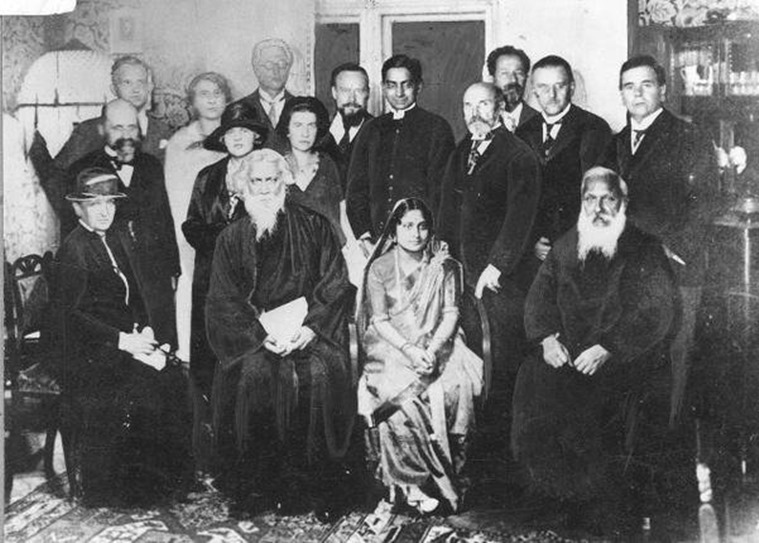 Rabindranath Tagore during his tour of the West in 1921. (Photo: oldindianphotos.in)
Rabindranath Tagore during his tour of the West in 1921. (Photo: oldindianphotos.in)
He believes the wider reason for this song’s significance is because of its quest to look for the permanence of human existence in a world torn apart by World War II. “Surrounded by death, this song is a yearning for life. Surrounded by destruction and the possibility of his own end, this song is a call for a new beginning. Surrounded by mortality, this is his final defiant call for the human values that are immortal,” adds Dr Ghosh, who researches and writes about art-house traditions in Indian films and about their impact on contemporary cinema.
In her book ‘Baeeshe Shrabon (22nd of the month of Shravan, the day Tagore died)’, Nirmal Kumari Mahalanobis aka Rani Mahalanobis gives a detailed description of the event marked by songs, dances and staging of a play — Bashikaran.
Among the highlights of the play was the character played by Banamali — Tagore’s old domestic help who quite efficiently and confidently played the role of a servant — writes Mahalanobish, wife of Indian Statistical Institute’s founder Prasanta Chandra Mahalanobis, who attended the event.
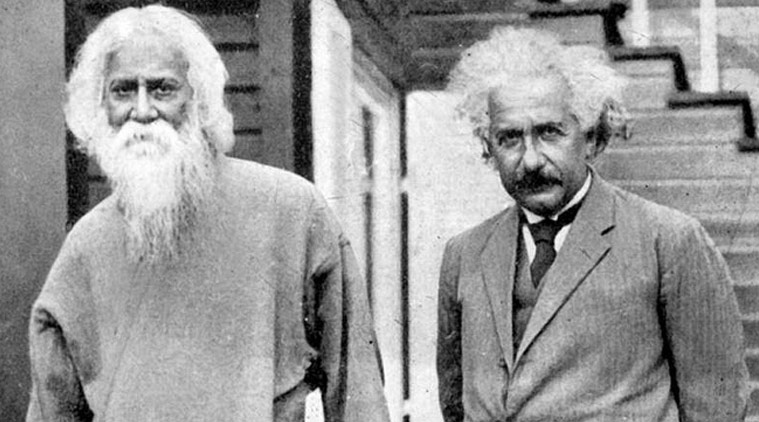 Rabindranath Tagore with Albert Einstein. (Source: Wikimedia Commons)
Rabindranath Tagore with Albert Einstein. (Source: Wikimedia Commons)
“See how good he (Banamali) is. Staying with me, he even learnt to act,” she quotes Tagore as saying after the function.
It’s Ponchishe Boishakh on May 8 and time for Tagore admirers world over to once again sing the song set in morning raga Bhairavi, invoking the rising sun — the song that welcomes the new dawn, praying for the auspicious moment of birth to return once again, displacing all morning haze and mist — like the rising sun.
For news updates, follow us on Facebook, Twitter, Google+ & Instagram
May 03: Latest News
- 01
- 02
- 03
- 04
- 05


